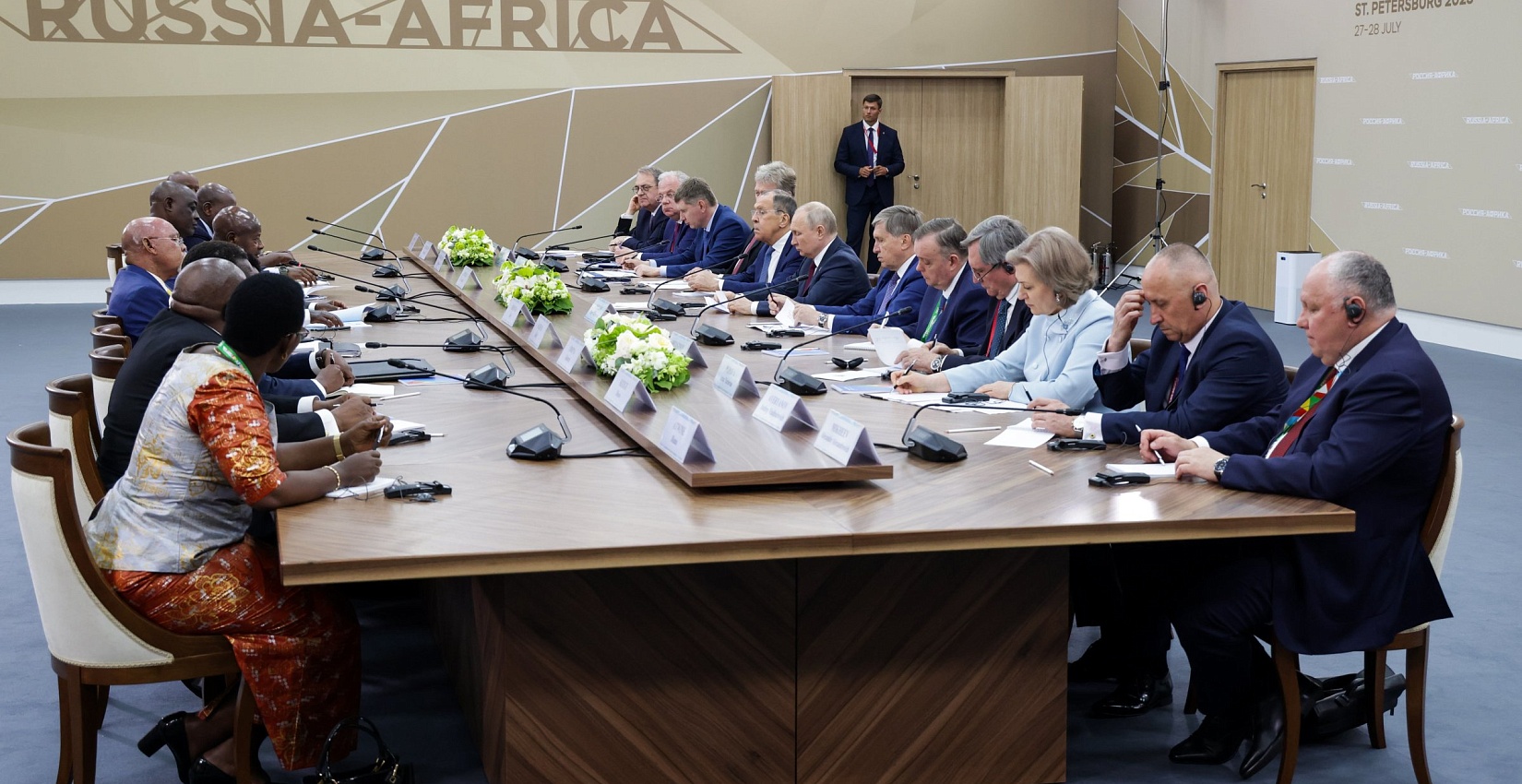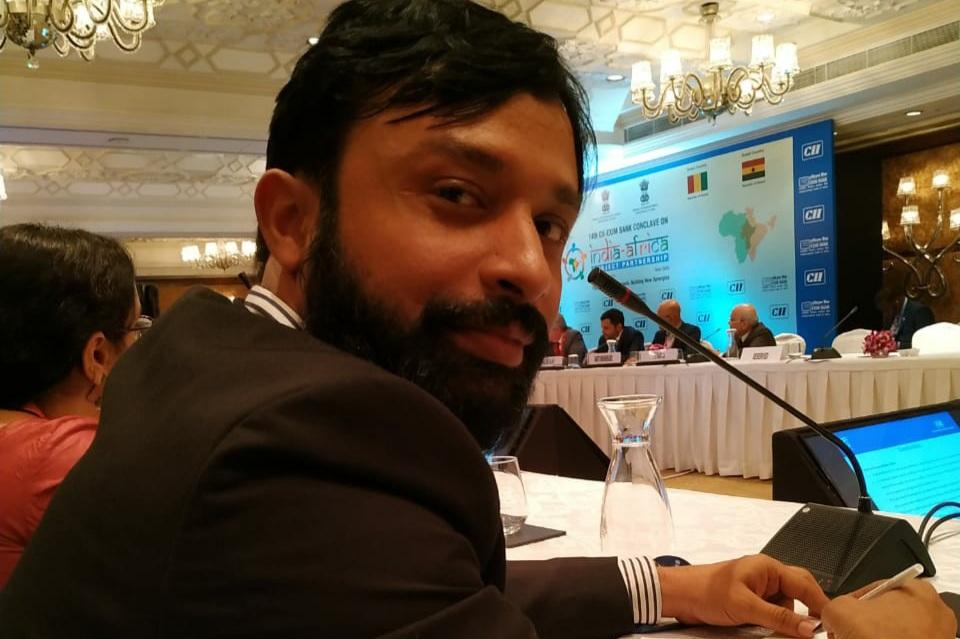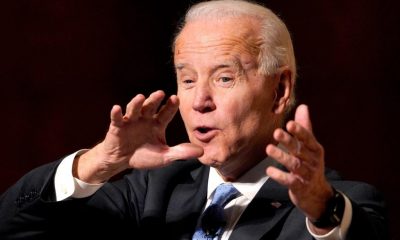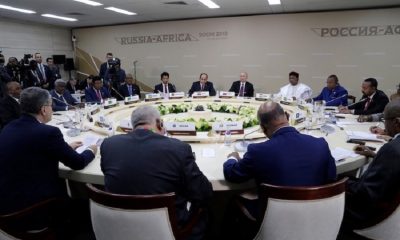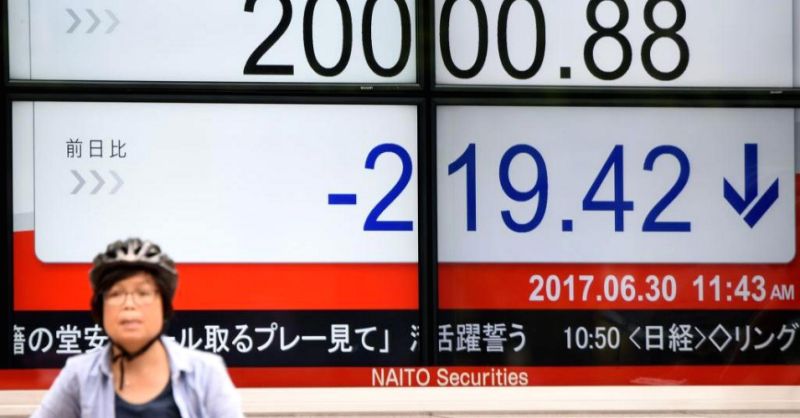World
Gearing Up for mid-December White House’s African Leaders Summit
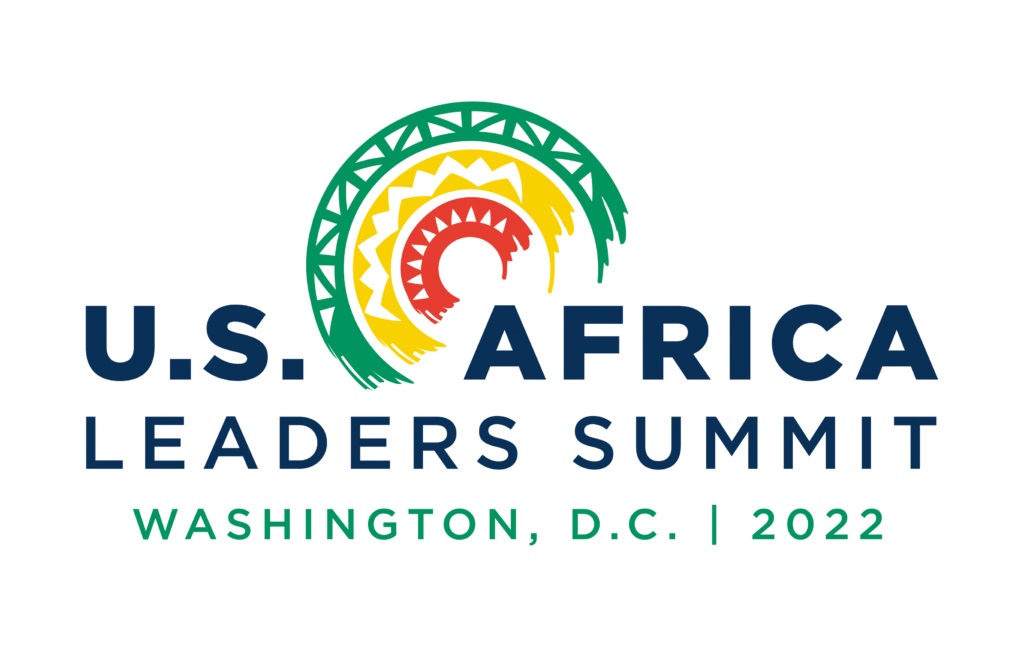
By Kestér Kenn Klomegâh
As the White House gears up for the mid-December African Leaders Summit, several reports indicated that a few African countries might not attend. U.S. President Joe Biden plans to hold an African leaders’ gathering in Washington as a further major step to strengthen geopolitical dialogue and multifaceted relations between the United States and Africa.
The White House National Security Council in November told Today News Africa the criteria for inviting African governments to attend the U.S.-Africa Leaders Summit scheduled for December 13-15. While the primary goal is to host a broadly inclusive gathering of high-powered delegations from across the African continent, a number of African countries were blacklisted.
In a statement, four countries were not invited because they were suspended by the African Union (AU) following military coups and counter-coups. Currently, four countries – Burkina Faso, Guinea, Sudan, and Mali – are suspended by the AU and were not invited. All four countries not invited are currently run by strong men who took political power with guns. The United States recognizes most African nations, except a few like Western Sahara.
According to reports monitored by this author, the U.S.-African summit will discuss the emerging global order and changing geopolitical and economic issues and will also offer enormous funds for various development projects as well as for good governance and human rights. Under the plan, Washington says the summit will focus on existing challenges, especially those relating to peace and security, food security to climate change and poverty alleviation directions across Africa.
The high-level dialogue is expected to set the scene for reviewing the opportunities for the United States and corporate leaders from various African public and private sectors and review thoroughly how to strengthen the economic partnership between the United States and Africa.
That U.S.-Africa summit “will demonstrate the United States enduring commitment to Africa and will underscore the importance of U.S.-Africa relations and increased cooperation on shared global priorities. Africa will shape the future – not just the future of the African people, but of the world. Africa will make the difference in tackling the most urgent challenges and seizing the opportunities we all face,” according to a statement from Biden Administration.
Washington considers the United States’ collaboration with leaders from African governments, civil society, the private sector, and the African diaspora would help tackle some of the existing and future challenges, especially in efforts to offer billions of dollars for various development projects, including building badly needed infrastructure and support energy security for the population.
In terms of broadening trade and economic cooperation, according to our monitoring sources, African leaders would be required to bring huge delegations for special sessions during the mid-December summit. Together with their potential American investors would examine ways for exploring and leveraging the African Continental Free Trade Area (AfCFTA).
The AfCFTA aims to create a single market with an estimated population of 1.3 billion population and ultimately requires all kinds of business services and consumable products. Quite challenging, though, but there are new legislations that stipulate localizing production and distribution inside Africa.
The United States government and private sector leaders, together with African political and corporate business leaders, have been consistently working over these years to share insights on critical issues and policies influencing the US-Africa economic partnership.
The U.S. Agency for International Development would be working closely with African institutions and organizations; it would be working closely on the participation of Africans. During these past months, USAID has provided approximately $1.3 billion in aid to the Horn of Africa. Ethiopia, Kenya and Somalia are listed as beneficiaries to help stave off mass starvation and deaths in the drought-stricken region of Africa.
Further to that, Dana Banks, White House Senior Director for Africa, said the White House administration has been pushing for the Prosper Africa Build Together Campaign that would drive billions of dollars of investment in Africa. Summit details will soon be announced further detailed information, according to Washington and the Corporate Council on Africa (CCA).
In August, on her African trip, U.S. Ambassador to the United Nations Linda Thomas-Greenfield said the long-planned trip is not part of global competition with either of America’s rivals, but it is part of a series of high-level U.S. engagements “that aim to affirm and strengthen our partnerships and relationships with African leaders and people.”
Her trip from Aug. 4-7 was followed immediately by U.S. Secretary of State Antony Blinken’s visits to South Africa, Congo and Rwanda from Aug. 7-11. “We’re not catching up. They are catching up,” Thomas-Greenfield said. “We have been engaging with this continent for decades, and even my own career is very much evidence of that.”
Thomas-Greenfield first went to Africa as a student in the 1970s, and in her career as a U.S. diplomat, she rose to be Assistant Secretary of State for African Affairs from 2013 to 2017. Many American corporate business leaders have visited and invested significantly in various sectors in Africa.
The Bill & Melinda Gates Foundation has made a resonating announcement that the foundation will spend $7 billion over the next four years to improve health, gender equality and agriculture across Africa. Strengthening and supporting these sectors have become necessary due to increasing complaints about lack of funds and, worse, due to the negative impact of geopolitical changes.
It will further continue to invest in researchers, entrepreneurs, innovators and healthcare workers who are working to unlock the tremendous human potential that exists across the continent, according to the statement, noting that the Russia-Ukraine crisis was reducing the amount of aid flowing to the continent and created global instability. It appeals to global leaders to step up their commitment to finding solutions to multiple problems in African countries.
Noteworthy to reiterate here that President Biden has held several summits since his inauguration in January 2021. For instance, on December 9-10, 2021, President Biden held the first of two Summits for Democracy, which brought together leaders from government, civil society, and the private sector in a shared effort to set forth “an affirmative agenda for democratic renewal and to tackle the greatest threats faced by democracies today through collective action.”
Now the U.S.-Africa Leaders Summit comes just a few months after Secretary of State Antony J. Blinken unveiled the new U.S. policy for Africa in South Africa in August. The new policy says that the United States will pursue four main objectives in Africa. The four objectives of the new strategy are fostering openness and open societies, delivering democratic and security dividends, advancing pandemic recovery and economic opportunities, and supporting conservation, climate adaptation and a just energy transition.
The new strategy begins by acknowledging that “Sub-Saharan Africa plays a critical role in advancing global priorities to the benefit of Africans and Americans” and that it “has one of the world’s fastest-growing populations, largest free trade areas, most diverse ecosystems, and one of the largest regional voting groups in the United Nations (UN).”
To realize its ‘openness and open societies’ objective, the U.S. will promote government transparency and accountability, increase the U.S. focus on the rule of law, justice, and dignity, and assist African countries to more transparently leverage their natural resources for sustainable development.
For democracy and security dividends, the United States will focus on “working with allies and regional partners to stem the recent tide of authoritarianism and military takeovers, backing civil society, empowering marginalized groups, centring the voices of women and youth, and defending free and fair elections, improving the capacity of African partners to advance regional stability and security and reducing the threat from terrorist groups to the United States Homeland, persons, and diplomatic and military facilities.”
The mid-December Summit has already gained wide popularity among African leaders and, for the second time, will be the biggest U.S.-Africa gathering in Washington since former President Barack Obama hosted African leaders in 2014.
In addition, Obama also started the Young African Leaders Initiative (YALI), which brings every year a group of young Africans to the White House. Until today, YALI continues to run various educational and training programmes, including seminars for Africans. The Times Higher Education index indicated that approximately 43,000 Africans have currently enrolled on and are studying in American universities.
Angolan President, João Lourenço, in an interview with Hariana Veras, White House correspondent, praised President Joseph R. Biden Jr. for hosting the U.S.-Africa Leaders’ Summit, saying that it will help create a win-win partnership between the United States and Africa, accelerating industrialization, increase direct foreign investment and further cement the already good collaboration between Angola and the United States.
According to that report, he pointed to the assertiveness of the Biden administration’s focus on trade and investment in Africa, highlighted America’s commitment to Africa’s security, its democratic development, and its people, as well as emphasize the depth and breadth of the United States commitment to the African continent.
The Angolan leader advised that the Russian and Ukraine war should open the eyes of advanced countries to lead efforts in increasing investment in more alternative energy sources besides the traditionally used energy sources. As the Russia-Ukraine war rages in Europe and its ramifications are extended to other parts of the world, including in Africa, Lourenço called for increased food production and investment in African nations, saying that the global food crisis has badly affected Africa.
Despite some negative criticisms, African leaders continue sourcing different kinds of economic assistance and support provided by the United States. The African leaders are mostly western-oriented, admire its never-failing practical soft-power play, and, in turn, maintain long-term geopolitical interest with the West. The United States has political, economic and cultural ties with independent African countries.
World
AfBD, AU Renew Call for Visa-Free Travel to Boost African Economic Growth

By Adedapo Adesanya
The African Development Bank (AfDB) and the African Union have renewed their push for visa-free travel to accelerate Africa’s economic transformation.
The call was reinforced at a High-Level Symposium on Advancing a Visa-Free Africa for Economic Prosperity, where African policymakers, business leaders, and development institutions examined the need for visa-free travel across the continent.
The consensus described the free movement of people as essential to unlocking Africa’s economic transformation under the African Continental Free Trade Area (AfCFTA).
The symposium was co-convened by AfDB and the African Union Commission on the margins of the 39th African Union Summit of Heads of State and Government in Addis Ababa.
The participants framed mobility as the missing link in Africa’s integration agenda, arguing that while tariffs are falling under AfCFTA, restrictive visa regimes continue to limit trade in services, investment flows, tourism, and labour mobility.
On his part, Mr Alex Mubiru, Director General for Eastern Africa at the African Development Bank Group, said that visa-free travel, interoperable digital systems, and integrated markets are practical enablers of enterprise, innovation, and regional value chains to translate policy ambitions into economic activity.
“The evidence is clear. The economics support openness. The human story demands it,” he told participants, urging countries to move from incremental reforms to “transformative change.”
Ms Amma A. Twum-Amoah, Commissioner for Health, Humanitarian Affairs and Social Development at the African Union Commission, called for faster implementation of existing continental frameworks.
She described visa openness as a strategic lever for deepening regional markets and enhancing collective responses to economic and humanitarian crises.
Former AU Commission Chairperson, Ms Nkosazana Dlamini-Zuma, reiterated that free movement is central to the African Union’s long-term development blueprint, Agenda 2063.
“If we accept that we are Africans, then we must be able to move freely across our continent,” she said, urging member states to operationalise initiatives such as the African Passport and the Free Movement of Persons Protocol.
Ghana’s Trade and Industry Minister, Mrs Elizabeth Ofosu-Adjare, shared her country’s experience as an early adopter of open visa policies for African travellers, citing increased business travel, tourism, and investor interest as early dividends of greater openness.
The symposium also reviewed findings from the latest Africa Visa Openness Index, which shows that more than half of intra-African travel still requires visas before departure – seen by participants as a significant drag on intra-continental commerce.
Mr Mesfin Bekele, Chief Executive Officer of Ethiopian Airlines, called for full implementation of the Single African Air Transport Market (SAATM), saying aviation connectivity and visa liberalisation must advance together to enable seamless travel.
Regional representatives, including Mr Elias Magosi, Executive Secretary of the Southern Africa Development Community, emphasised the importance of building trust through border management and digital information-sharing systems.
Ms Gabby Otchere Darko, Executive Chairman of the Africa Prosperity Network, urged governments to support the “Make Africa Borderless Now” campaign, while tourism campaigner Ras Mubarak called for more ratifications of the AU Free Movement of Persons protocol.
Participants concluded that achieving a visa-free Africa will require aligning migration policies, digital identity systems, and border infrastructure, alongside sustained political commitment.
World
Nigeria Exploring Economic Potential in South America, Particularly Brazil

By Kestér Kenn Klomegâh
In this interview, Uche Uzoigwe, Secretary-General of NIDOA-Brazil, discusses the economic potential in South America, particularly Brazil, and investment incentives for Brazilian corporate partners for the Federal Republic of Nigeria (FRN). Follow the discussion here:
How would you assess the economic potential in the South American region, particularly Brazil, for the Federal Republic of Nigeria? What investment incentives does Nigeria have for potential corporate partners from Brazil?
As the Secretary of NIDOA Brazil, my response to the questions regarding the economic potentials in South America, particularly Brazil, and investment incentives for Brazilian corporate partners would be as follows:
Brazil, as the largest economy in South America, presents significant opportunities for the Federal Republic of Nigeria. The country’s diverse economy is characterised by key sectors such as agriculture, mining, energy, and technology. Here are some factors to consider:
- Natural Resources: Brazil is rich in natural resources like iron ore, soybeans, and biofuels, which can be beneficial to Nigeria in terms of trade and resource exchange.
- Growing Agricultural Sector: With a well-established agricultural sector, Brazil offers potential collaboration in agri-tech and food security initiatives, which align with Nigeria’s goals for agricultural development.
- Market Size: Brazil boasts a large consumer market with a growing middle class. This represents opportunities for Nigerian businesses looking to export goods and services to new markets.
- Investment in Infrastructure: Brazil has made significant investments in infrastructure, which could create opportunities for Nigerian firms in construction, engineering, and technology sectors.
- Cultural and Economic Ties: There are historical and cultural ties between Nigeria and Brazil, especially considering the African diaspora in Brazil. This can facilitate easier business partnerships and collaborations.
In terms of investment incentives for potential corporate partners from Brazil, Nigeria offers several attractive incentives for Brazilian corporate partners, including:
- Tax Incentives: Various tax holidays and concessions are available under the Nigerian government’s investment promotion laws, particularly in key sectors like agriculture, manufacturing, and technology.
- Repatriation of Profits: Brazil-based companies investing in Nigeria can repatriate profits without restrictions, thus enhancing their financial viability.
- Access to the African Market: Investment in Nigeria allows Brazilian companies to access the broader African market, benefiting from Nigeria’s membership in regional trade agreements such as ECOWAS.
- Free Trade Zones: Nigeria has established free trade zones that offer companies the chance to operate with reduced tariffs and fewer regulatory burdens.
- Support for Innovation: The Nigerian government encourages innovation and technology transfer, making it attractive for Brazilian firms in the tech sector to collaborate, particularly in fintech and agriculture technology.
- Collaborative Ventures: Opportunities exist for joint ventures with local firms, leveraging local knowledge and networks to navigate the business landscape effectively.
In conclusion, fostering a collaborative relationship between Nigeria and Brazil can unlock numerous economic opportunities, leading to mutual growth and development in various sectors. We welcome potential Brazilian investors to explore these opportunities and contribute to our shared economic goals.
In terms of this economic cooperation and trade, what would you say are the current practical achievements, with supporting strategies and systemic engagement from NIDOA?
As the Secretary of NIDOA Brazil, I would highlight the current practical achievements in economic cooperation and trade between Nigeria and Brazil, alongside the supporting strategies and systemic engagement from NIDOA.
Here are some key points:
Current Practical Achievements
- Increased Bilateral Trade: There has been a notable increase in bilateral trade volume between Nigeria and Brazil, particularly in sectors such as agriculture, textiles, and technology. Recent trade agreements and discussions have facilitated smoother trade relations.
- Joint Ventures and Partnerships: Successful joint ventures have been established between Brazilian and Nigerian companies, particularly in agriculture (e.g., collaboration in soybean production and agricultural technology) and energy (renewables, oil, and gas), demonstrating commitment to mutual development.
- Investment in Infrastructure Development: Brazilian construction firms have been involved in key infrastructure projects in Nigeria, contributing to building roads, bridges, and facilities that enhance connectivity and economic activity.
- Cultural and Educational Exchange Programs: Programs facilitating educational exchange and cultural cooperation have led to strengthened ties. Brazilian universities have partnered with Nigerian institutions to promote knowledge transfer in various fields, including science, technology, and arts.
Supporting Strategies
- Strategic Trade Dialogue: NIDOA has initiated regular dialogues between trade ministries of both nations to discuss trade barriers, potential markets, and cooperative opportunities, ensuring both countries are aligned in their economic goals.
- Investment Promotion Initiatives: Targeted initiatives have been established to promote Brazil as an investment destination for Nigerian businesses and vice versa. This includes showcasing success stories at international trade fairs and business forums.
- Capacity Building and Technical Assistance: NIDOA has offered capacity-building programs focused on enhancing Nigeria’s capabilities in agriculture and technology, leveraging Brazil’s expertise and sustainable practices.
- Policy Advocacy: Continuous advocacy for favourable trade policies has been a key focus for NIDOA, working to reduce tariffs and promote economic reforms that facilitate investment and trade flows.
Systemic Engagement
- Public-Private Partnerships (PPPs): Engaging the private sector through PPPs has been essential in mobilising resources for development projects. NIDOA has actively facilitated partnerships that leverage both public and private investments.
- Trade Missions and Business Delegations: Organised trade missions to Brazil for Nigerian businesses and vice versa, allowing for direct engagement with potential partners, fostering trust and opening new channels for trade.
- Monitoring and Evaluation: NIDOA implements a rigorous monitoring and evaluation framework to assess the impact of various initiatives and make necessary adjustments to strategies, ensuring effectiveness in achieving economic cooperation goals.
Through these practical achievements, supporting strategies, and systemic engagement, NIDOA continues to play a pivotal role in enhancing economic cooperation and trade between Nigeria and Brazil. By fostering collaboration and leveraging shared resources, we aim to create a sustainable and mutually beneficial economic environment that promotes growth for both nations.
Do you think the changing geopolitical situation poses a number of challenges to connecting businesses in the region with Nigeria, and how do you overcome them in the activities of NIDOA?
The changing geopolitical situation indeed poses several challenges for connecting businesses in the South American region, particularly Brazil, with Nigeria. These challenges include trade tensions, shifting alliances, currency fluctuations, and varying regulatory environments. Below, I will outline some of the specific challenges and how NIDOA works to overcome them:
Current Challenges
- No Direct Flights: This challenge is obviously explicit. Once direct flights between Brazil and Nigeria become active, and hopefully this year, a much better understanding and engagement will follow suit.
- Trade Restrictions and Tariffs: Increasing trade protectionism in various regions can lead to higher tariffs and trade barriers that hinder the movement of goods between Brazil and Nigeria.
- Currency Volatility: Fluctuations in the value of currencies can complicate trade agreements, pricing strategies, and overall financial planning for businesses operating in both Brazil and Nigeria.
- Different regulatory frameworks and compliance requirements in both countries can create challenges for businesses aiming to navigate these systems efficiently.
- Supply Chain Disruptions: Changes in global supply chains due to geopolitical factors may disrupt established networks, impacting businesses relying on imports and exports between the two nations.
Overcoming Challenges through NIDOA.
NIDOA actively engages in discussions with both the Brazilian and Nigerian governments to advocate for favourable trade policies and agreements that reduce tariffs and improve trade conditions. This year in October, NIDOA BRAZIL holds its TRADE FAIR in São Paulo, Brazil.
What are the popular sentiments among the Nigerians in the South American diaspora? As the Secretary-General of the NIDOA, what are your suggestions relating to assimilation and integration, and of course, future perspectives for the Nigerian diaspora?
As the Secretary-General of NIDOA, I recognise the importance of understanding the sentiments among Nigerians in the South American diaspora, particularly in Brazil.
Many Nigerians in the diaspora take pride in their cultural roots, celebrating their heritage through festivals, music, dance, and culinary traditions. This cultural expression fosters a sense of community and belonging.
While many individuals embrace their new environments, they often face challenges related to cultural differences, language barriers, and social integration, which can lead to feelings of isolation.
Many express optimism about opportunities in education, business, and cultural exchange, viewing their presence in South America as a chance to expand their horizons and contribute to economic activities both locally and back in Nigeria.
Sentiments regarding acceptance vary; while some Nigerians experience warmth and hospitality, others encounter prejudice or discrimination, which can impact their overall experience in the host country. NIDOA BRAZIL has encouraged the formation of community organisations that promote networking, cultural exchange, and social events to foster a sense of belonging and support among Nigerians in the diaspora. There are currently two forums with over a thousand Nigerian members.
Cultural Education and Awareness Programs: NIDOA BRAZIL organises cultural education programs that showcase Nigerian heritage to local communities, promoting mutual understanding and appreciation that can facilitate smoother integration.
Language and Skills Training: NIDOA BRAZIL provides language courses and skills training programs to help Nigerians, especially students in tertiary institutions, adapt to their new environment, enhancing communication and employability within the host country.
Engaging in Entrepreneurship: NIDOA BRAZIL supports the entrepreneurial spirit among Nigerians in the diaspora by facilitating access to resources, mentorship, and networks that can help them start businesses and create economic opportunities.
Through its AMBASSADOR’S CUP COMPETITION, NIDOA Brazil has engaged students of tertiary institutions in Brazil to promote business projects and initiatives that can be implemented in Nigeria.
NIDOA BRAZIL also pushes for increased tourism to Brazil since Brazil is set to become a global tourism leader in 2026, with a projected 10 million international visitors, driven by a post-pandemic rebound, enhanced air connectivity, and targeted marketing strategies.
Brazil’s tourism sector is poised for a remarkable milestone in 2026, as the country expects to welcome over 10 million international visitors—surpassing the previous record of 9.3 million in 2025. This expected surge represents an ambitious leap, nearly doubling the country’s foreign-arrival numbers within just four years, a feat driven by a combination of pent-up global demand, strategic air connectivity improvements, and a highly targeted marketing campaign.
World
African Visual Art is Distinguished by Colour Expression, Dynamic Form—Kalalb

By Kestér Kenn Klomegâh
In this insightful interview, Natali Kalalb, founder of NAtali KAlalb Art Gallery, discusses her practical experiences of handling Africa’s contemporary arts, her professional journey into the creative industry and entrepreneurship, and also strategies of building cultural partnership as a foundation for Russian-African bilateral relations. Here are the interview excerpts:
Given your experience working with Africa, particularly in promoting contemporary art, how would you assess its impact on Russian-African relations?
Interestingly, my professional journey in Africa began with the work “Afroprima.” It depicted a dark-skinned ballerina, combining African dance and the Russian academic ballet tradition. This painting became a symbol of cultural synthesis—not opposition, but dialogue.
Contemporary African art is rapidly strengthening its place in the world. By 2017, the market was growing so rapidly that Sotheby launched its first separate African auction, bringing together 100 lots from 60 artists from 14 foreign countries, including Algeria, Ghana, Mali, Nigeria, Senegal, and others. That same year during the Autumn season, Louis Vuitton Foundation in Paris hosted a major exhibition dedicated to African art. According to Artnet, sales of contemporary African artists reached $40 million by 2021, a 434% increase in just two years. Today, Sotheby holds African auctions twice a year, and in October 2023, they raised $2.8 million.
In Russia, this process manifests itself through cultural dialogue: exhibitions, studios, and educational initiatives create a space of trust and mutual respect, shaping the understanding of contemporary African art at the local level.
Do you think geopolitical changes are affecting your professional work? What prompted you to create an African art studio?
The international context certainly influences cultural processes. However, my decision to work with African themes was not situational. I was drawn to the expressiveness of African visual language—colour, rhythm, and plastic energy. This theme is practically not represented systematically and professionally in the Russian art scene.
The creation of the studio was a step toward establishing a sustainable platform for cultural exchange and artistic dialogue, where the works of African artists are perceived as a full-fledged part of the global cultural process, rather than an exotic one.
To what extent does African art influence Russian perceptions?
Contemporary African art is gradually changing the perception of the continent. While previously viewed superficially or stereotypically, today viewers are confronted with the depth of artistic expression and the intellectual and aesthetic level of contemporary artists.
Portraits are particularly impactful: they allow us to see not just an abstract image of a “continent,” but a concrete personality, character, and inner dignity. Global market growth data and regular auctions create additional trust in African contemporary art and contribute to its perception as a mature and valuable movement.
Does African art reflect lifestyle and fashion? How does it differ from Russian art?
African art, in my opinion, is at its peak in everyday culture—textiles, ornamentation, bodily movement, rhythm. It interacts organically with fashion, music, interior design, and the urban environment. The Russian artistic tradition is historically more academic and philosophical. African visual art is distinguished by greater colour expression and dynamic form. Nevertheless, both cultures are united by a profound symbolic and spiritual component.
What feedback do you receive on social media?
Audience reactions are generally constructive and engaging. Viewers ask questions about cultural codes, symbolism, and the choice of subjects. The digital environment allows for a diversity of opinions, but a conscious interest and a willingness to engage in cultural dialogue are emerging.
What are the key challenges and achievements of recent years?
Key challenges:
- Limited expert base on African contemporary art in Russia;
- Need for systematic educational outreach;
- Overcoming the perception of African art as exclusively decorative or ethnic.
Key achievements:
- Building a sustainable audience;
- Implementing exhibition and studio projects;
- Strengthening professional cultural interaction and trust in African
contemporary art as a serious artistic movement.
What are your future prospects in the context of cultural diplomacy?
Looking forward, I see the development of joint exhibitions, educational programs, and creative residencies. Cultural diplomacy is a long-term process based on respect and professionalism. If an artistic image is capable of uniting different cultural traditions in a single visual space, it becomes a tool for mutual understanding.
-

 Feature/OPED6 years ago
Feature/OPED6 years agoDavos was Different this year
-
Travel/Tourism10 years ago
Lagos Seals Western Lodge Hotel In Ikorodu
-

 Showbiz3 years ago
Showbiz3 years agoEstranged Lover Releases Videos of Empress Njamah Bathing
-

 Banking8 years ago
Banking8 years agoSort Codes of GTBank Branches in Nigeria
-

 Economy3 years ago
Economy3 years agoSubsidy Removal: CNG at N130 Per Litre Cheaper Than Petrol—IPMAN
-

 Banking3 years ago
Banking3 years agoSort Codes of UBA Branches in Nigeria
-

 Banking3 years ago
Banking3 years agoFirst Bank Announces Planned Downtime
-

 Sports3 years ago
Sports3 years agoHighest Paid Nigerian Footballer – How Much Do Nigerian Footballers Earn


